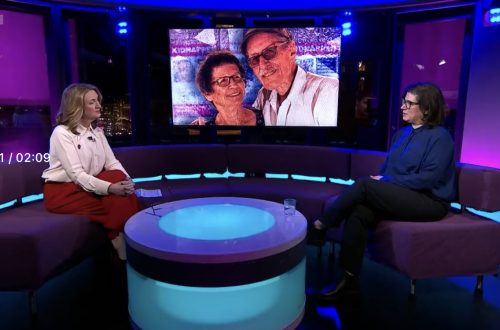The Telegraph reports:
Multi-million pound donations from foreign governments have corrupted British universities and threatened academic impartiality, according to a new report.
Universities are accused of a lack of transparency, with foreign donors, including regimes accused of human rights abuses, allowed to give money anonymously.
At least 10 universities, including Oxford and Cambridge, have accepted donations totalling hundreds of millions of pounds.
The report, to be published by the Centre for Social Cohesion (CSC), a think-tank, looks at the funding of Arabic, Islamic and Chinese study centres at academic institutions across the UK.
It alleges that some allow the principal donor “significant oversight” over their running, leading to the censorship of teachers and students.
Examples highlighted in the report include:
* The barring of a painting by a Saudi artist from an exhibition at the School of Oriental and African Studies (SOAS), in London, last year.
Abdulnasser Gharem wanted to show a work depicting a cracked bridge with “Al-Siraat” (“the path”) scrawled across it, but the curators chose an alternative work by the artist instead.
SOAS said the decision was taken “to avoid causing unnecessary offence” to Muslims.
* The stifling of a discussion at the Saudi-funded Oxford University Middle East Centre (MEC).
When one academic questioned a Saudi participant about terrorist funding at a conference last year, Dr Eugene Rogan, director of the MEC, asked the academic to restrain his language and to “bear in mind what is appropriate to say in the venue where you might be going beyond what would be comfortable for everyone to hear”.
* The revelation that Chinese study centres, known as Confucius Institutes, hosted at several UK universities have members of the Chinese government sitting on their advisory board.
According to the study, the institutes’ curriculum and teaching standard are set in China with their host universities required to accept “operational guidance” from Beijing.
The report argues that the institutes are a “tool for Chinese propaganda” espousing a one-dimensional view of the country, in particular its relationship with Tibet.
Last year Cambridge and Edinburgh universities were jointly given £16 million to establish an Islamic studies centre. The donor, Prince Alwaleed Bin Talal of Saudi Arabia, is allowed to pick appointees on the management committees at both centres.
The report also argues that foreign donors are viewing British universitites as diplomatic tools and “cultural arms of their government abroad”.
In 2001, the Oxford University MEC received a £1 million grant from the King Abdul Aziz Foundation for Research and Archives, based in Saudi Arabia and named after the nation’s founder.
In 1999, SOAS reportedly received £180,000 from the Islamic Centre of England, an organisation with close links to the Iranian government.
SOAS later hosted an event in tribute to the way Ayatollah Khomeini, Iran’s former leader, “modernised” Islamic thought.
Robin Simcox, a research fellow at CSC and author of the report, said there was “a real problem” in UK universities that needed to be addressed.
He said: “Universities across the UK are taking huge amounts of cash from regimes with appalling records on human rights. This clearly needs to be addressed. The country’s finest universities are in bed with some of the world’s worst human rights abusers.
“The concept of foreign funding itself is not the problem. However, too often the donation is not for impartial academic research, but a public relations exercise aimed at altering perceptions of certain nations and subjects.”

